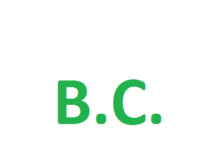PEOPLE who own residential properties in the new areas for the speculation and vacancy tax (SVT) can take steps now to ensure they are exempt from paying the tax next year. The SVT now includes the municipalities of North Cowichan, Duncan, Ladysmith, Lake Cowichan, Lions Bay and Squamish.
The purpose of the tax is to help eliminate speculative real-estate practices and turn empty housing into homes for people, says the Province.
“People in our province expect housing to be used as homes, not investments for speculators. The speculation and vacancy tax is making sure homes are available for people, not left empty,” said Katrine Conroy, Minister of Finance, on Friday. “That’s why we’re bringing the benefits of this tax to even more communities, to ensure more people have the homes they need.”
Property owners in these areas will need to declare in early 2024, based on the use of their property in 2023. Ninety-nine per cent of people who live in British Columbia can expect to be exempt for the 2023 tax year, but homeowners in these areas will be required to declare for the SVT.
“The people who call Duncan home know that we are facing the same housing pressures of larger centres. We need to increase supply and ensure the housing we have is used as homes,” said Michelle Staples, Mayor of Duncan. “The speculation and vacancy tax will help increase the available housing, which is badly needed.”
For residential property owners who are not currently using their property, there are opportunities to still be eligible for an exemption next year. For example, owners who rent their home six or more months each year, for at least a month at a time, may be eligible. People who use their property as a principal home, and pay their taxes in B.C., are also eligible for exemption.
The SVT expansion is part of B.C.’s Homes for People plan. The plan will deliver more homes that people need in a shorter timeframe and build more vibrant communities throughout B.C. The SVT has helped turn approximately 20,000 empty condos into homes for people in Metro Vancouver. The expansion will help bring more homes to communities struggling with low vacancy rates.
SVT revenue goes back into regions where the tax applies. Since 2018, the SVT has raised more than $313 million to help build new, more affordable types of housing. During the same period through the Homes for B.C. and the Homes for People plans, more than $3.9 billion, including the $313 million raised through the SVT, has been allocated for new housing in those same communities. The tax will now help build more affordable housing for people in these new SVT areas.
Quick Facts:
* An estimated 48,000 residential property owners in these new areas will declare for the first time, starting January 2024.
* In the 2023 tax year, there are 46 communities with the speculation and vacancy tax.
Learn More:
To learn more about how to declare, available exemptions and declaration supports go to https://www2.gov.bc.ca/gov/
To remove the name of a deceased person from a B.C. land title: https://ltsa.ca/property-
Update your mailing address with BC Assessment: https://eforms.bcassessment.
BACKGROUNDER
What you need to know to complete your SVT declaration
Approximately 1.7 million declarations will be completed as part of the 2024 SVT declaration period that will begin in January 2024.
Areas benefiting from the SVT:
The following communities have been included in the SVT since 2018:
* Municipalities in the Capital Regional District
* Municipalities in the Metro Vancouver Regional District (except Lions Bay)
* City of Abbotsford
* District of Mission
* City of Chilliwack
* City of Kelowna
* City of West Kelowna
* City of Nanaimo
* District of Lantzville
Starting in the 2023 tax year, residential properties in communities below will be subject to the SVT. Residential property owners in these areas will begin their declaration in early 2024:
* North Cowichan
* Duncan
* Ladysmith
* Lake Cowichan
* Lions Bay
* Squamish
Who will need to declare:
Residential property owners on title will need to declare. That includes all family members on title, such as spouses. For example, if a parent and an adult child are on a single title, both will have to complete a declaration, even if the adult child isn’t living in the home. SVT is based on how each owner uses the residential property.
What owners need to declare:
Owners will receive a declaration letter and brochure that will explain how they can declare and claim an exemption for the SVT. As well, people will need their social insurance number and date of birth. Corporations will need information, such as their business number, incorporation number and citizenship status.
How people can declare:
Each year, more than 90% of homeowners complete their SVT declaration online through a secure application that protects people’s information upon entry. Owners who use their property as a home often declare within a few minutes.
People who do not own a computer or electronic device, or those who need additional support, can get help from a call centre agent who will help them declare over the phone.
Exemptions to the SVT:
There are exemptions for individuals and corporations for circumstances such as major home renovations and life events, divorce, hospitalization or extended absence. Since the launch of the tax, the top three exemptions claimed are: principal residence, occupied by a tenant and recently acquired or inherited. Information on exemptions is available online or with a call-centre agent.
Deceased owner on title:
If there is a deceased owner on title, a declaration will be sent in their name to the address on file with the BC Assessment Authority. That declaration will need to be completed by a representative who has the authority on the deceased owner’s behalf. Surviving family members are strongly encouraged to remove the names of deceased owners from title as soon as possible. It is important land titles are up to date for the administration of taxes.
Keeping titles up to date:
B.C.’s land title system requires owners keep all titles up to date. Land titles are used by regulatory and legal authorities to verify ownership. This allows people to securely complete transactions, such as land sales, as quickly as possible. They can also be used for tax administration.













